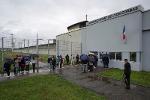The state remains bankers' main client, while the economy is still unable to absorb credits, says Federico Ghizzoni, head of Italian group UniCredit's operations in Central and Eastern Europe.
"I phone Rasvan Radu, our CEO in Romania, on a weekly basis to encourage him to boost lending, like I do with our other bankers in the region," Ghizzoni says.
"We are pressing for increased lending. We are talking with our people to find opportunities to grant funding. If a project is workable, we should go ahead and do it, not pull back, because economies need to start budging. One also needs to work on a psychological level in order to overcome the crisis," said the UniCredit official.
This is the first time that a high-ranking official of a foreign bank present on the Romanian market gives such a strong signal for lending to be resumed.
Ghizzoni says banks also have a social responsibility in the current international economic context. "We are private organisations, we work for a profit, but we also need to support the economies and to be more daring when it comes to lending. It's time to show we are good banks by giving loans, not by staying on the sidelines."
He complains however that, except on markets such as Poland and Turkey, the answer from bankers in the group is that demand is still lacking.
The state remains bankers' main client, while the economy is still unable to absorb credits, says Federico Ghizzoni, head of Italian group UniCredit's operations in Central and Eastern Europe.
"I phone Rasvan Radu, our CEO in Romania, on a weekly basis to encourage him to boost lending, like I do with our other bankers in the region," Ghizzoni says.
"We are pressing for increased lending. We are talking with our people to find opportunities to grant funding. If a project is workable, we should go ahead and do it, not pull back, becaus




